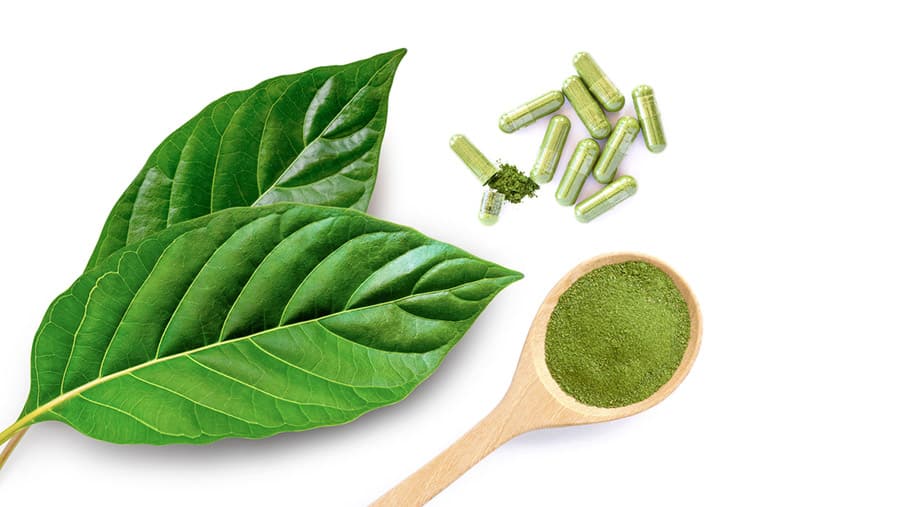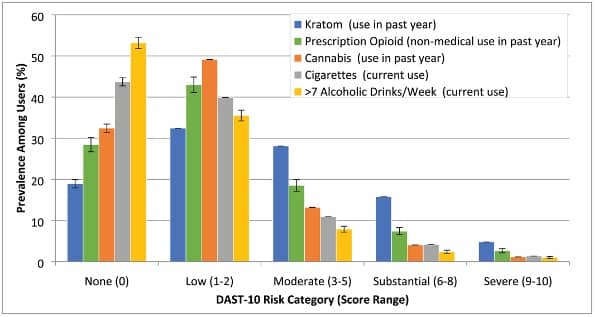Is Kratom Dangerous?
There are many misconceptions when it comes to Kratom. Many people wonder what it is and is Kratom dangerous? Kratom is a plant native to Thailand and Southeastern Asia that is usually crushed and made into a powder form. When consumed in large quantities, Kratom can make the user feel intoxicated in a similar way to opiates, alcohol, and other depressant drugs. When consumed in smaller doses, the drug is known to produce a stimulant-like effect. It is a controlled substance in Thailand, as it has become the third most abused drug in the country. Though the DEA has issued statements indicating their concern about the abuse-potential of Kratom, it is thus far not been classed as a controlled substance in the United States. But is Kratom dangerous? How does perpetually abusing the substance affect the brain and the liver?

Most drugs, even commonly considered safe over the counter drugs like Tylenol, are bad for the liver when used in excess. Kratom liver damage is a concern for some habitual users. Kratom has been found to be habit forming and causes unpleasant effects on the body in the short and long term. The effects of Kratom vary person to person, and is dependent on the amount ingested. There is very little research on Kratom liver damage, but the most common effects that Kratom has on the body are nausea, itching, sweating, dry mouth, constipation, increased urination, and loss of appetite along side the “high” users report. In some cases, Kratom users have experienced seizures, hallucinations, and other symptoms of psychosis (according the National Institute on Drug Abuse). The NIDA further emphasize that there have been deaths related to the intake of Kratom, but there were often other substances involved. There were a few cases in which the individuals had fatal encounters with the substance on its own. So, is Kratom dangerous despite being a plant? These instances indicate yes.

Though Kratom is legal in the United States at the federal level, the FDA has issued warnings that made it difficult to import the drug as a “dietary supplement” (FDA Import Alert 54-15). Seekers of alternative medicines may be asking themselves is Kratom dangerous? THE FDA has claimed: “there is inadequate information to provide reasonable assurance that such ingredient (Kratom) does not present a significant or unreasonable risk of illness or injury.” Essentially, the FDA is not yet equipped with enough information to ban the substance entirely, but as the percentage of users increases, the dangerous nature of the drug Kratom may become more and more apparent. (Top 5 Dangers of Kratom Abuse | The Summit Wellness Group) Loved ones of those affected by drug and alcohol addiction may be asking themselves is Kratom dangerous? It is not found to have any positive affect for withdrawing off of drugs like heroin or other opiates.
Check Your Insurance Coverage for FREE
Find out if your insurance covers addiction treatment in minutes. We accept most insurance!
Can Kratom Cause Liver damage?
According to Drugs.com, there is a small correlation between liver damage and Kratom usage, thought there may have not been enough data collected at this point since it is a newer drug. The site states that “in 2019, researchers published information that liver injury is a possible side effect from Kratom use. They reviewed 404 cases of liver damage from dietary supplements. Eight of the cases, which occurred between 2007 and 2017, were tied to Kratom and the product was used two to six weeks before signs of liver damage appeared. Five patients had jaundice (a yellowing of the skin); six had itching; five had abdominal pain, and three had fever”.
This is a relatively small sample size in Kratom liver damage studies, but not one to be entirely discounted. As with any substance, the effect it has on the body may not be obvious until later. There isn’t enough research at this point to support Kratom liver damage, and given it wide range of side effects, it may be safer to avoid it. As described by the Summit Wellness Group, “there a spectrum of different types of acute liver damage caused by drug use. The specific symptoms can be diverse depending on the drug in question. In the case of Kratom, cholestasis is the main outcome observed. The National Institutes of Health have given Kratom a Hepatotoxicity Score B, which they define as ‘likely cause of clinically apparent liver damage’.”
Brain Damage
Much like the data regarding Kratom liver damage, there is little research about Kratom brain damage. According to Eleanor Health, “the two main compounds in Kratom leaves, mitragynine, and 7-α-hydroxymitra-gynine, interact with opioid receptors in the brain. These compounds produce sedative effects when consumed in large doses and stimulant effects when consumed in small doses. Doctors believe that Kratom attaches itself to the same parts of a nerve cell as opioid painkillers and, as such, causes similar effects in the brain”. One could therefore draw the conclusion that Kratom may have similar long term effects on the brain as opiates do, or even stimulant drugs, though there are no specific statistics to demonstrate Kratom brain damage.
Reach out to Hotel California by the Sea
We specialize in treating addiction and other co-occurring disorders, such as PTSD. Our Admissions specialists are available to walk you through the best options for treating your addiction.
The question is broader than is Kratom dangerous. With any mind-altering substance, there should always be a risk assessment before use. Though the potential for harm such as Kratom brain damage or Kratom liver damage is still largely unknown, we do know that those who use drugs recreationally or habitually are more likely to experiment and try other substances as well, especially if they are legal and easier to acquire. It shouldn’t be disregarded that Kratom has similar effects to both opiate and stimulant drugs. According to AmercicanAddictionCenters.org, “Kratom may also be abused by those battling heroin or opioid addiction as a method of combating opioid withdrawal even though Kratom carries a potential risk for dependence and addiction in and of itself”. This suggests that Kratom is a deceptive substance, and may be a false hope for some who are already struggling with addiction.
References:
(Top 5 Dangers of Kratom Abuse | The Summit Wellness Group)
Kratom DrugFacts | National Institute on Drug Abuse (NIDA)
Kratom: Uses, Effects, Hazards & Abuse Potential – Drugs.com
All About Kratom – Eleanor Health
